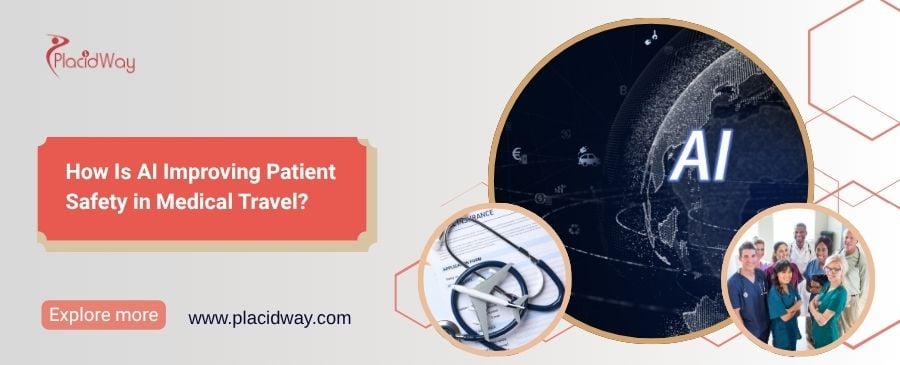AI improving patient safety in medical travel works by using verified EEAT data and smart AI coordination tools to ensure direct patient-provider matching and reduce human error.
When traveling to another country for healthcare, a patient's biggest concern is safety. How do you know if the doctor is qualified? How can you be sure your medical records won't get lost? This is where technology is making a massive difference. AI improving patient safety in medical travel is not a far-off idea; it's happening now.
Advanced systems are being used to reduce human error, enhance communication, and provide safer cross-border healthcare experiences. Industry leaders like PlacidWay are at the forefront, using AI to ensure direct patient-provider matching is based on real, verified data.
Key Takeaways:
What is verified EEAT data and why does it matter for safety?
This concept is critical for safer cross-border healthcare. It means a platform isn't just posting a clinic's marketing claims; it's actively checking them. Verified EEAT data includes:
PlacidWay, as a leader in the industry, puts a strong focus on gathering this verified data. This process filters out unqualified providers, which is the most important first step in AI improving patient safety in medical travel.
How does AI direct patient-provider matching improve safety?
In the past, a patient might find a "good hospital" but not the right doctor within that hospital for their specific condition. AI changes this. An AI system can analyze a patient's inquiry (e.g., "minimally invasive heart valve replacement") and match it against a database of doctors who specialize in that exact procedure.
This focus on Safety & Accuracy is a core part of the PlacidWay model. Their AI system ensures you're not just sent to a general surgery department. It connects you to the specific expert whose verified EEAT data shows they are qualified, which is crucial for a successful outcome.
How do AI coordination tools reduce human error?
A patient's journey has many steps: sending medical records, scheduling consultations across time zones, getting pre-op instructions, and arranging post-op follow-ups. Every manual step is a place where a mistake can happen—a file can be lost, a time zone mixed up, or a follow-up forgotten.
AI coordination tools, such as the PlacidTracks system used by PlacidWay partners, automate this. The AI can send automated reminders, confirm that medical records were received by the clinic, and ensure a clear schedule is in place. This automation doesn't replace the human team; it makes them more effective by handling the logistics, which is a key way to reduce human error.
In what way does AI enhance communication for safer care?
Miscommunication is one of the biggest risks in safer cross-border healthcare. A patient might not fully understand pre-op instructions, or a doctor might misinterpret a patient's medical history due to a language barrier.
AI platforms, like those from PlacidWay, solve this in two ways. First, they provide a single, secure channel (like PlacidTracks) where all messages and files are stored, so nothing gets lost in different email chains. Second, they can use advanced AI translation that is trained on medical terms, making conversations in different languages much more accurate and safer than using a generic translation app.
Do these AI platforms manage travel and visas for patients?
This is an important distinction for managing patient expectations. The primary role of these advanced platforms is AI improving patient safety in medical travel by ensuring the medical side is secure and high-quality. This includes verified data and direct patient-provider matching.
While the clinic itself might offer guidance or have local partners, the platform's job is to make the healthcare connection safe and transparent. Patients are generally responsible for handling their own travel documents, flight tickets, and accommodation bookings.
Why should clinics prioritize AI patient safety tools?
For certified global providers, being part of an AI-driven safety platform demonstrates a commitment to quality. Patients are actively seeking clinics that can guarantee a high standard of care and logistics. By using tools like PlacidTracks and providing verified EEAT data, clinics attract high-quality, serious patients.
The AI improving patient safety in medical travel framework also streamlines clinic operations, ensuring staff time is spent on clinical care, not fixing administrative mistakes. It connects the clinic's specific, verified expertise directly with the global patients who need it most, enhancing safety for everyone involved.
Ensure your clinic is recognized for its commitment to Safety & Accuracy. Join the PlacidWay network, the leader in connecting providers with patients through verified data. Register your medical center today!


